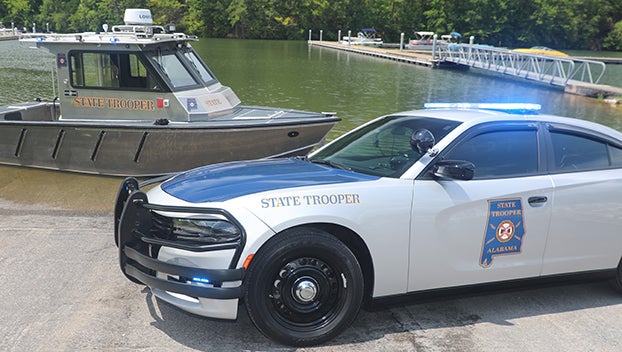ALEA encouraging all to think smart before you start this spring break
Published 4:41 pm Friday, March 26, 2021
|
Getting your Trinity Audio player ready...
|
Alabama Law Enforcement Agency (ALEA) officials are encouraging students of all ages and their parents to think smart, plan ahead and review safety laws before traveling.
Between now and the end of April, Alabama motorists should expect busier than normal roadways and waterways across the state, officials said in a release. As families and both high school/college students depart and begin traveling to and from the beaches, lakes or other warm-weather attractions to enjoy some much-needed recreation, we ask everyone to be careful and practice safe driving habits. We encourage all students both in and out of state, to develop a preplanned route and ensure that your vehicle is functioning properly; this includes equipping your vehicle with a roadside emergency kit. Whatever the plan, ALEA’s mission is to ensure public safety by enforcing state laws and assisting both motorists and boaters.
“Remember: Safety starts at home. Parents, we encourage you to sit down with your children – particularly if your teens will be traveling with friends and no chaperones — and review Alabama’s traffic and boating laws,” ALEA Secretary Hal Taylor said. “Remind them to buckle up, move over for emergency personnel, obey speed limits, avoid texting and other distractions while driving and use personal floatation devices while boating.”
Taylor also urges parents to closely monitor their teens to prevent underage consumption of alcoholic beverages. Individuals who are of the legal age to consume alcohol should do so responsibly and utilize a designated driver.
“It is no secret that this school year has been one of the most challenging in recent history, affecting students, families and educators,” said Taylor. “We want everyone to safely enjoy this time for relaxation and recreation without any loss of life. All we ask is that you make smart choices and celebrate
responsibly.”
It is equally important for teen drivers and their parents to have a clear understanding of the state’s Graduated Driver License law, a three-stage licensing process that places certain restrictions on young drivers who need time to acquire experience before driving without supervision or restrictions:
- Stage I (learner’s permit): A teen is authorized to drive when accompanied by a parent, legal guardian or licensed driver age 21 or older who is occupying the front passenger
- Stage II (restricted license): A 16 or 17-year-old who has passed the road skills test may drive without supervision, but he or she must not have more than one passenger in the vehicle other than parents, legal guardians or family members; must not use any handheld communication devices while driving; must not drive between midnight and 6 a.m. unless accompanied by a parent, legal guardian or licensed driver age 21 or older.
- Stage III (unrestricted license): A 17-year-old who has held a Stage II license for six months or longer may obtain an unrestricted license. Anyone who is age 18 or older may bypass the first two stages and obtain a STAR III license after passing the road skills





